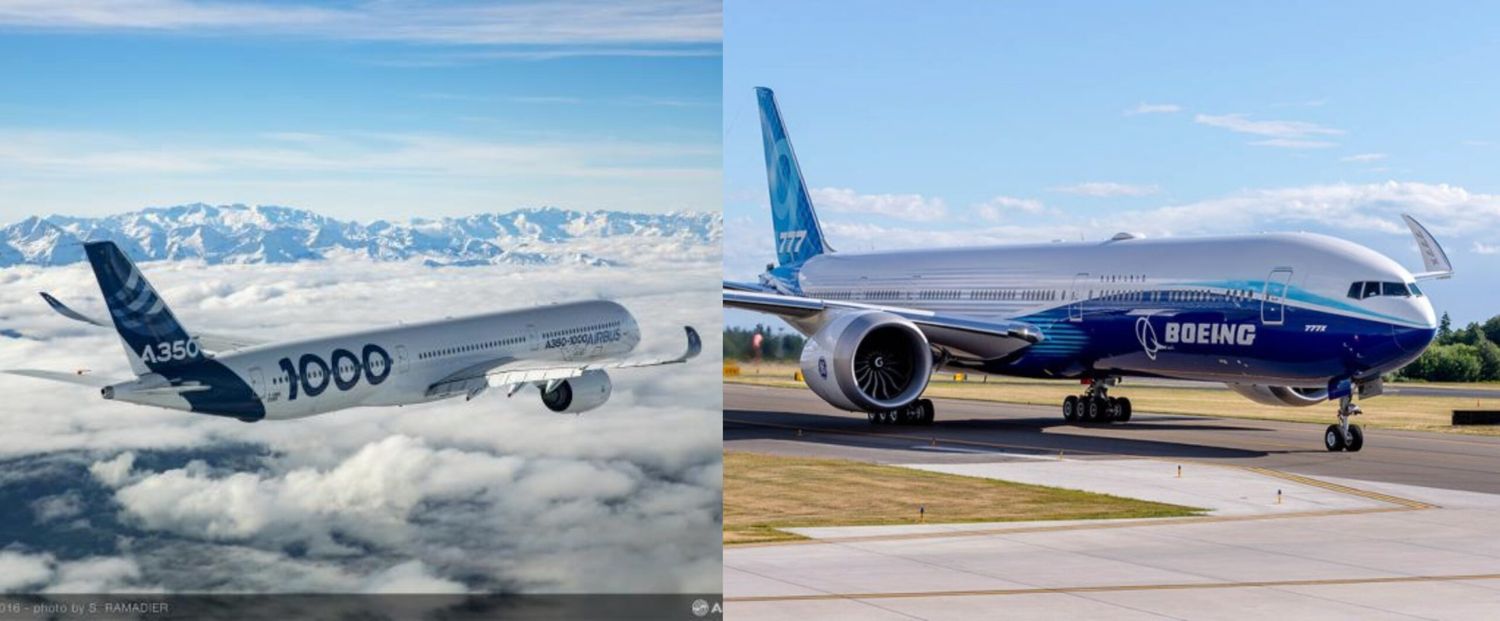Airbus overtakes Boeing and is the largest commercial aircraft manufacturer for the third year in a row
2021 concluded with one certainty: it was a complex year for the entire commercial aviation industry, and the manufacturers were no exception. Accentuating pre-pandemic trends, Airbus and Boeing faced off again, and the result was the same as in 2019 and 2020: the European holding conglomerate was crowned the world’s largest commercial aircraft manufacturer.
After a 2020 year of utter disaster for all industry players, 2021 allowed to show some signs of recovery. The upturn was rather more evident for Boeing because it had more ground to gain: while in 2020 it delivered 157 aircraft, the recertification of the 737 MAX -occurring at the end of 2019- allowed it to double total deliveries, reaching 340.
Falling far, very far behind was Airbus, which closed in 2021 with 611 aircraft delivered. Moreover, for the first time in 10 years, it surpassed Boeing in widebodies by delivering 78 against 77 by the Renton giant.
Over and above the slow recovery in long-haul travel, Boeing’s widebody year is also explained by issues with the 787, which paused deliveries to reviewing material quality and production details, and the slow pace of 777 deliveries as it reconverts the assembly line to begin production of the 777X.
Looking ahead
In 2021, the fight for new orders has a net winner and only one if we consider a certain token number: Airbus won the new order battle 507 to 479, but Boeing believes it closed the year with 535 orders because it considers as new units 56 aircraft that had been canceled in 2020 and found a new operator last year.
The large year-end orders, which allowed Airbus to open the champagne it had in store, have not yet been counted as firm because they have yet to be signed. So we can consider that Airbus is already starting 2022 with 140 aircraft on order.
In any case, ending the year with 479 or 535 orders rounds off a great year for Boeing: considering that 2020 ended with a net result of -1096, it is a victory that the following year the number was positive. Primarily driven by renewed interest in the cargo market, Boeing regained a good part of that segment even though Airbus is threatening to jump right in with the A350F.
One advantage Boeing could have in the near future is the backlog, but it will have to solve its production problems to take advantage of it. It may gain many orders because the delivery date of its aircraft is closer than that of Airbus, whose backlog ensures years of business, but limits it when it comes to taking new orders.
The European manufacturer will have to optimize its supply chain and production to the maximum to make room, or start bringing assembly lines up from under the ground to meet future demand. Even if such a miracle is accomplished, it will depend on the hundreds of suppliers and their ability to increase in-house production, which is not easy to do in relatively normal times and is almost impossible in this period of a declining pandemic.


Para comentar, debés estar registradoPor favor, iniciá sesión